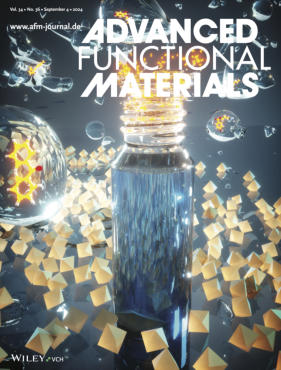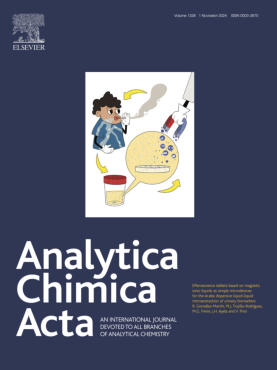WHAT WE DO
INCORPORATION OF NEW MATERIALS IN MICROEXTRACTION
ANALYTICAL APPLICATIONS
I.P.-F. © 2026

Design and synthesis of materials
The
goal
of
MAT4LL
Research
Group
is
the
design
of
new
extraction
phases
based
on
different
materials,
including
metal-organic
frameworks,
ionic
liquids,
deep
eutectic
solvents,
and
(bio)polymers.
The
group
specifically
aims
to
exploit
the
synthetic
versatility
of
these
materials
to
prepare
extraction
phases
with
improved
physicochemical
properties,
extraction
performance,
and
selectivity
for
the
specific
applications.
Thus,
the
functionalization
of
metal-
organic
frameworks
and
(bio)polymers,
and
the
synthesis
of
magnetic
ionic
liquids
and
polymeric
ionic
liquids
are
the
main
research
lines
explored
in
the
group.
MAT4LL
also
seeks
the
rational
preparation
of
hybrid
materials
that
present
advanced
characteristics
with
respect
to
the
individual
components
with
the
aim
of
improving
stability
and
selectivity
of
the
extraction
phase.
Moreover,
the
sustainability
and
toxicity
of
the
new
materials
is
an
important
aspect
considered
in
the
MAT4LL
scope.
In
this
sense,
the
design
always
contemplates
the
use
of
renewable
sources
and non-harmful reagents, while the toxicity of the new materials is also evaluated.
Development of analytical methods based on microextraction
All
the
materials
prepared
in
MAT4LL
are
used
as
extraction
phases
in
microextraction
techniques.
These
sample
preparation
strategies
not
only
meet
the
requirements
of
the
Green
Analytical
Chemistry,
but
also
present
a
high
preconcentration
potential,
which
is
important
for
trace
analysis.
Moreover,
the
flexibility
and
simplicity
of
these
techniques
facilitate
their
implementation
in
analytical
laboratories
as
alternative
to
conventional
methods,
leading
to
automated
set-up
in
some
cases.
MAT4LL
evaluates
all
the
developed
materials
in
liquid-phase
microextraction
techniques
(DLLME,
ABS,
etc.)
and
in
the
different
modes
of
sorbent-based
microextraction
(dispersive
solid-phase
extraction,
magnetic-assisted
procedures,
and
SPME
variations).
More
recently,
the
group
mainly
focuses
on
designing
and
fabricating
portable,
reusable
and
easy-to-use
microextraction
devices,
such
as
fibers
(SPME),
membranes
(TFME),
and
other
geometries
(InVial
and
Tirita4Diag
projects).
Currently,
the
group
has
published
2
patents on the devices designed and fabricated within our research.
Non-invasive bioanalysis
MAT4LL
pursues
the
development
of
efficient
non-invasive
platforms
for
bioanalysis
using
biological
fluids,
such
as
urine
or
saliva.
Biomonitoring
is
a
fundamental
tool
to
assess
the
correlations
between
exposure
and
diseases.
Microextraction
devices
perfectly
fits
in
this
application
considering
the
limited
access
to
high
volumes
of
this
type
of
samples.
Similarly,
the
use
of
more
efficient
and
selective
extraction
phases
is
beneficial
considering
the
high
complexity
of
biological
matrices.
Among
the
wide
variety
of
analysis
in
this
field,
the
group
aims
to
optimize
and
validate
analytical
methods
for
the
determination
of
biomarkers
associated
with
the
human
exposure
to
contaminants of emerging concern, including pharmaceuticals and personal care products.
Monitoring contaminants of emerging concern in the Canary Islands waters
Tourism
is
the
main
economical
activity
developed
in
The
Canary
Islands.
However,
tourism
also
has
a
significant
impact
on
the
environment
by
increasing
the
waste
generation
and
contamination
of
aquatic
ecosystems.
Indeed,
the
negative
effect
of
overexplotaition
of
water
resources
in
the
Islands
has
been
already
pointed
out.
One
of
the
target
applications
of
the
MAT4LL
group
is
the
incorporation
of
the
developed
microextraction
techniques
with
novel
materials
in
water
analysis
to
monitor
contaminants
of
emerging
concern
and
persistent
contaminats.
Thus,
both
organic
compounds
and
metal
species
are
monitored
at
trace
concentration
levels.
This
research
line
pursues
the
analysis
of
different
water
bodies,
from
groundwaters
and
seawaters
to
wastewaters,
bath
and
drinking
waters.
The
results
of
this
project
will
be
useful
for
future
recommended
actions
to
minimize
the
impact
of
these
contaminants
in
the
environment.
Moreover,
MAT4LL
also
explores
the
possibility
of
using
the
developed
materials
to
carry
out
the
decomposition of the contaminants by heterogeneous photocatalysis.



















